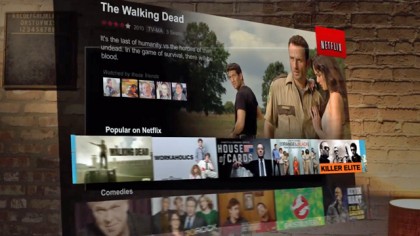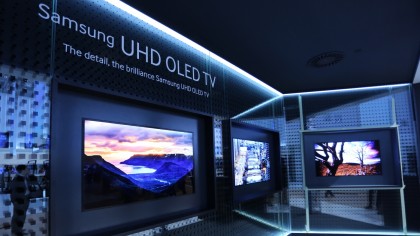Origin of the series: how TV producers are adapting for on demand
How streaming is changing the television game
That's great for YouTube, but it can be frustrating for streaming services that rely on traditional television infrastructure for new shows. As a result, many are starting to commission their own series to keep the flow of content coming, based on their own data on what people want to watch.
Major players
Netflix has made the biggest splash so far by remaking cult political drama House of Cards with Kevin Spacey, and commissioning a long-demanded new series of the much-loved comedy Arrested Development. It's also hoping that teens will be as keen on werewolves as they are vampires with Hemlock Grove, and is bringing several superheroes to the small screen with Marvel.

Amazon hasn't been taking that sitting down, though, with five series planned for 2014. Two are adult comedies, one featuring John Goodman and Bill Murray and the other focusing on Silicon Valley. The rest are aimed at a kids audience – Annebots, Creative Galaxy and Tumbleaf. Meanwhile, it's been snapping up exclusives on a stack of BBC hits like The Office, Jonathan Creek, Top Gear and Spooks.
Amazon has also commissioned a sextet of comedy pilots, and Microsoft will be putting a live-action Halo TV series, produced by Steven Spielberg on to its Xbox One console. Sony isn't far behind either, forming a unit inside its movie studio Sony Pictures called PlayStation Productions.
"Commissioners and the channels that they work for need to become a bit braver."
So far it's almost all fiction, however. "It would be great if companies like Netflix were to start looking at producing documentaries for more niche markets – something that TV broadcasters will not do, despite there being a big audience out there," says Tucker.
"I just made a documentary about videogames for a terrestrial UK channel that 1 million viewers watched on the night of transmission. But if it was on a platform like Netflix, an already-web-and-game-savvy audience would, I hope, watch in even greater numbers."
Sign up for breaking news, reviews, opinion, top tech deals, and more.
Next steps
So how can traditional TV fight back? "I think that commissioners and the channels that they work for need to become a bit braver with how they commission shows," he adds. "I also think that the big broadcasters, certainly in the UK, need to place much more value on the viewing figures that come from on demand viewing."
Meanwhile, the digital ground doesn't show any signs of settling. More changes are coming down the line, as Blu-ray and 3D fade into irrelevance and technology companies set their sights on 4K.

What happens next will depend largely on how consumers respond to exclusives and having to pay multiple subscription fees to see all the shows they want. If the arms race continues for more than a year or two, then it could erode trust in streaming services before they can get established in the mainstream. That would be bad for consumers, producers, streaming services and the TV industry as a whole.
Unfortunately, with an increasing amount of original content being produced, such a situation is looking more and more likely. If we're ever going to build a one-stop giant Blockbusters in the sky, we'll need to do rather better than that.
- Want to know where to find the best TV shows? If you are from the UK, then click this way...
